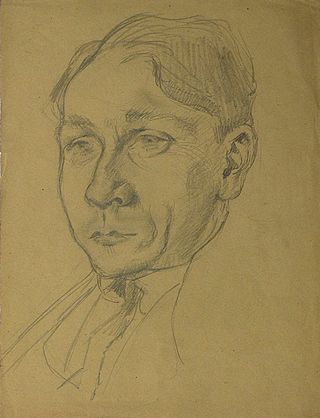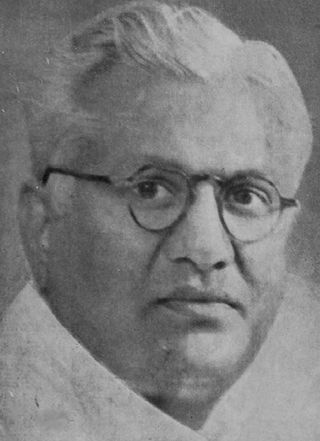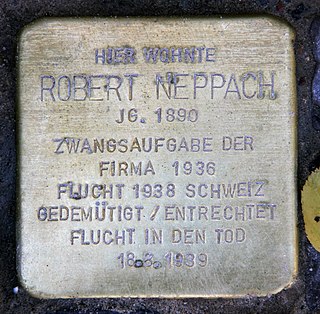Related Research Articles
Berthold Viertel was an Austrian screenwriter and film director, known for his work in Germany, the UK and the US.
Nicholas "Slug" Brodszky was a composer of popular songs for the theatre and for films.

Clarence Muse was an American actor, screenwriter, director, singer, and composer. He was the first African American to appear in a starring role in a film, 1929's Hearts in Dixie. He acted for 50 years, and appeared in more than 150 films. He was inducted into the Black Filmmakers Hall of Fame in 1973.
Walter Reisch was an Austrian-born director and screenwriter. He also wrote lyrics to several songs featured in his films, one popular title is "Flieger, grüß mir die Sonne". He was married to the dancer and actress Poldi Dur and was the cousin of Georg Kreisler.
The Bells is a 1931 British drama film directed by Harcourt Templeman and Oscar Werndorff and starring Donald Calthrop, Jane Welsh, and Edward Sinclair.
Oscar Friedrich Werndorff (1880–1938) was an Austrian art director. After leaving Germany in the early 1930s he moved to Britain where he worked in the British film industry. He co-directed the 1931 film The Bells.
Hans May was an Austrian-born composer who went into exile in Britain in 1936 after the Nazis came to power in his homeland, being of Jewish descent.
Günther Krampf was an Austrian cinematographer who later settled and worked in the UK. Krampf has been described as a "phantom of film history" because of his largely forgotten role working on a number of important films during the silent and early sound era. Only two of Krampf's films The Student of Prague (1926) and The Ghoul (1933) were expressionist, as he generally used a naturalistic style.
Werner Brandes was a German cinematographer. Brandes moved to Britain in the late 1920s to work on several prestige films for British International Pictures.
Josef Somlo (1884–1973) was a Hungarian film producer. Following the Nazi takeover in Germany, where he had worked for a number of years, Somlo went into exile in Britain. During his German period he was associated with Hermann Fellner with whom he co-produced a number of films for their Felsom Film company.
Felsom Film was a film production company which operated in Weimar Germany between 1922 and 1933. It was founded and run by producers Hermann Fellner and Josef Somlo. The company's name is a blend of their surnames.

Paul Kemp was a German stage and film actor. Kemp worked as a piano accompaniest for silent films, and then served as an ambulance driver on the Western Front during the First World War. Post-war he moved into acting on the stage in Düsseldorf and Hamburg. His career really took off when he moved to Berlin in 1929, appearing in the hit stage version of the novel Menschen im Hotel by Vicki Baum. He made his film debut in 1930, shortly after the introduction of sound film. He appeared prolifically in German and Austrian films until his death in 1953.

Chandulal Jesangbhai Shah was a famous director, producer and screenwriter of Indian films, who founded Ranjit Studios in 1929.
Wolfgang Wilhelm (1906–1984) was a German-born screenwriter who later settled in Britain. He worked in the German film industry before leaving after the Nazi taking of power in 1933. He worked for a number of Britain's leading film producers.

Curt Courant was a German cinematographer who worked on over a hundred films during the silent and early sound eras. Courant worked in several European countries, collaborating with figures such as Alfred Hitchcock and Fritz Lang. As he was of Jewish ancestry, Courant was forced to leave Germany in 1933 and go into exile following the Nazi takeover of power. Courant worked at several of the leading British studios during the mid-1930s. He was the uncle of Willy Kurant who also became a cinematographer.
Robert Baberske was a German cinematographer. Although he worked briefly in Britain, Baberske spent most of his career in the German film industry. Baberske began as an assistant to Karl Freund. He became a prominent film technician during the silent era, and later during the Nazi years. Following the Second World War, he lived and worked in East Germany on a number of propaganda films for the state-controlled DEFA studio.
Paul Merzbach was an Austrian screenwriter and film director. Merzbach worked in the Austrian and Germany film industries during the early stages of his career. He worked initially on scripts, but in 1924 he directed his first film. During the late 1920s, Merzbach worked in Sweden before returning to Germany.

Robert Neppach was an Austrian architect, film producer and art director. Neppach worked from 1919 in the German film industry. He oversaw the art direction of over 80 films during his career, including F.W. Murnau's Desire (1921) and Richard Oswald's Lucrezia Borgia (1922). Neppach was comparatively unusual among set designers during the era in having university training.
Walter Murton was a British art director, who worked from the 1920s until the 1940s. During his early career in the 1920s Murton was the regular set designer on the silent film series The Further Adventures of Sherlock Holmes and The Mystery of Dr. Fu Manchu.

Hans Jaray (1906–1990) was an Austrian actor and playwright. He also wrote and directed several television films. Jaray starred as a leading man in a number of 1930s films, such as the Schubert biopic Gently My Songs Entreat (1933). Jaray emigrated to the United States following the Anchluss of 1938, but returned to Vienna after the Second World War.
References
- ↑ Bergfelder & Cargnelli p.118